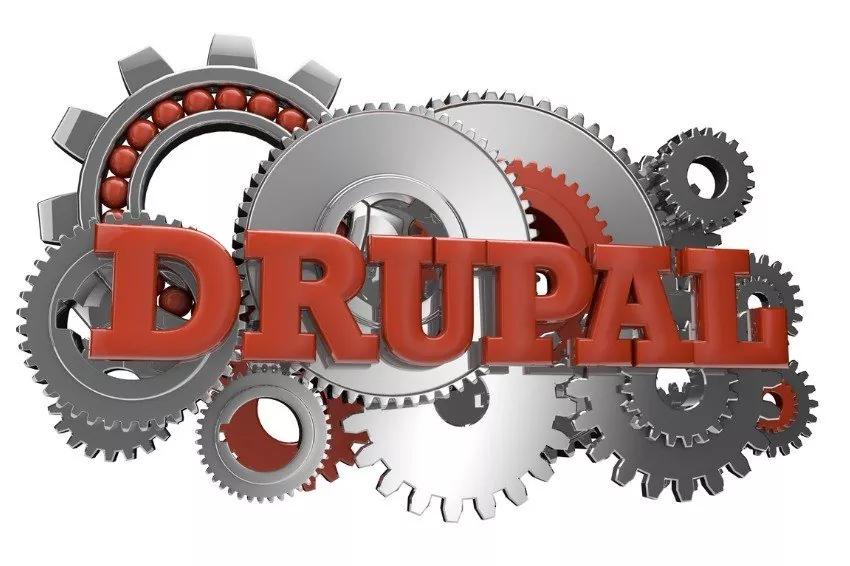Why We Love Drupal 8
March 6, 2017

It’s no secret that we’re big fans of Drupal at the Bridge. After an epically long development time, Drupal 8.0 was finally released in November 2015, representing a big shift in how the content management system works under the hood and the way developers must work with it. A little over a year on, we’ve launched several brand-new websites with Drupal 8 as the back-end. So, what do we think? Answers below…
Almost everything is “in the box”
Drupal 7 was great, but it was always a must to install additional modules to bring out its functionality. Now plugins like Ctools, Entity API, WYSIWYG editors, jQuery and so many other ubiquitous features are built into Drupal Core, making deployment and configuration much faster so we can get on with the real work of developing websites! Without knocking our other PHP CMS WordPress too much, it’d be nice to see more of that CMS’ essential modules (CPT UI, Total/Super Cache etc) built in as well.
Templating with Twig
The drastic overhaul of the Drupal templating engine makes building custom themes easier, more intuitive and easier than the old PHPEngine. PHP logic can be kept out of template files, making life much easier for front-end development. For our clients, this means, better code that’s easier to manage and overall faster implantation of your custom web layouts.
Symfony is music to our ears
ny is music to our earsDrupal is now based on the MVC framework Symfony. Cleaner, more elegant and mercifully more contemporary in architecture than Drupal 7. Sure, this represents something of a learning curve coming from Drupal 7, but this change, despite being somewhat disruptive, is for the better for developers working with Drupal and for the stability and modernity of the content management system. MVC Frameworks for PHP are the way forward to keep PHP relevant against the likes of Ruby on Rails, and it’s great to see members of the PHP CMS “old guard” embracing contemporary coding.
Even more extensible and modular
Hardcoding overrides through hooks was often the norm in Drupal 7 to develop functionality but now, it’s much easier to develop modules/plugins rapidly to build on the CMS core without constantly reinventing the wheel.
Streamlined content management
While still familiar for veterans, the content management back-end has been given a welcome overhaul. Faster, snappier, better organised and packed with CKEditor out of the box, there’s lots for our clients to love when it comes to day-to-day content management. While not as “pretty” as WordPress’ back-end, it’s a much smoother experience for a lot of seasoned content managers.
There are of course a few things to watch out for…
Smaller Support Community
While the documentation and developer support is great, there are less resources available for developers in terms of forums and articles to give you a head start when you get into trouble. If you encountered a Drupal 7 bug or oddity, a quick Google search can save a lot of research time on getting back on track. However, being a newer system with a significantly different core, this is not always the case with Drupal 8. Additionally, while almost everything you need can be found in Core, there are still some niche but useful modules that have yet to be ported, over a year on from release.
Changing Gears
For new Drupal projects, we will always choose the latest version. For existing sites, though, the upgrade to version 8 is not an insignificant undertaking as themes will need to be re-worked and custom modules made compatible or replaced. Because of this, clients with an established and well-functioning Drupal 7 may be less inclined to upgrade for some time yet. This leaves us in a position of having to support both versions, switching mental gears between Symfony, Twig and all that good stuff, and the “old” way!
Caching
Now, this is possibly an unfair one. We LOVE Drupal’s new caching. Pages load faster than ever before and cache rebuilds are still straightforward. But anecdotally, we have had more display bugs due to caching issues than any other problem while developing with Drupal 8, especially when Views share the same content but are intended to be styled differently. Without going in to detail, this has caused a fair share of developer headaches!
Ultimately though, Drupal 8 represents a huge step forward for the CMS. We’ve been enjoying our time getting to know it and are looking forward to releasing many more new Drupal 8 projects in 2017. It builds on everything we love about Drupal and drags it into the contemporary CMS landscape. It’s not perfect and won’t necessarily suit every client or project, but no Content Management System ever will and we will continue to wholeheartedly recommend Drupal as a solid and dependable CMS for our clients.
If you’d like to discuss your website or software development options with The Bridge at no cost or obligation, feel free to call Lawrence on 02 9993 3300 or email lawrence@thebridgedigital.com.au
